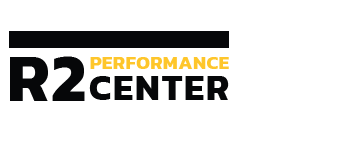

Use Problem Solving to Overcome Challenges
After weeks of grueling tests and setbacks, a Soldier in Ranger School is on the verge of quitting, convinced that he’s not cut out for the challenge. But he doesn’t realize that every small victory—the times he perseveres through pain or mistakes—proves he has what it takes to succeed. If only he could see beyond his setbacks. Have you ever experienced a problem like this? We often focus on what we think is the problem, using selective information or experiences to support our beliefs, without considering the whole picture and other contributing factors.
Using problem solving to overcome challenges is a resilience skill that can help individuals broaden their perspective by considering information they may have missed, thereby giving them a more accurate understanding of the issue. Problem solving allows for more flexibility, accuracy and thoroughness in thinking, which empowers Soldiers to identify root causes of their problems, to develop effective coping strategies, to bring about positive change and, ultimately, to reduce their likelihood of engaging in harmful behaviors.
Problem Solving in Action
Objectively describe the problem.
Example:
- I’ve been struggling with events during the first phase of Ranger School, and I want to understand how to overcome the challenges so that I can successfully push forward and graduate.
Focus on thoughts about why the problem happened. Ask yourself critical questions to identify additional factors that may have caused the problem. Critical questions include: How did other people or circumstances contribute? How did I contribute? What specific behaviors contributed to the trouble?
Examples:
- My instructor said, “You’re such a slacker” when I fell out of the ruck march.
- I am mentally and physically exhausted due to sleep deprivation.
- My injury is limiting my ability to perform well.
Accurately identify the true causes of the problem by weighing evidence for and against potential factors.
Examples:
- I fell out of one of the ruck marches due to pain, but I was able to fall back in and finish in the middle of the pack.
- Sleep is restricted 90% of the time, but there are five to 10 minutes throughout the day when I can fit in recovery practices.
- My injury is limiting my ability to perform at my best, but I am still passing well above the minimum standard.
Evaluate what factors are controllable and develop solution strategies that will bring about positive change.
Examples:
- When I receive criticism, I will listen for ways to improve my performance rather than take the critique personally.
- I will gather one or two sustains and one or two improvements for each event I complete, reflecting on ways I have grown and can grow from each experience.
- I will practice deliberate breathing for at least five to 10 minutes to recover when sleep is not an option.
- When I experience frustration over my injury, I will tell myself: “This is a temporary setback, not a failure.”
Resources
Download InfographicMORE SKILLS
